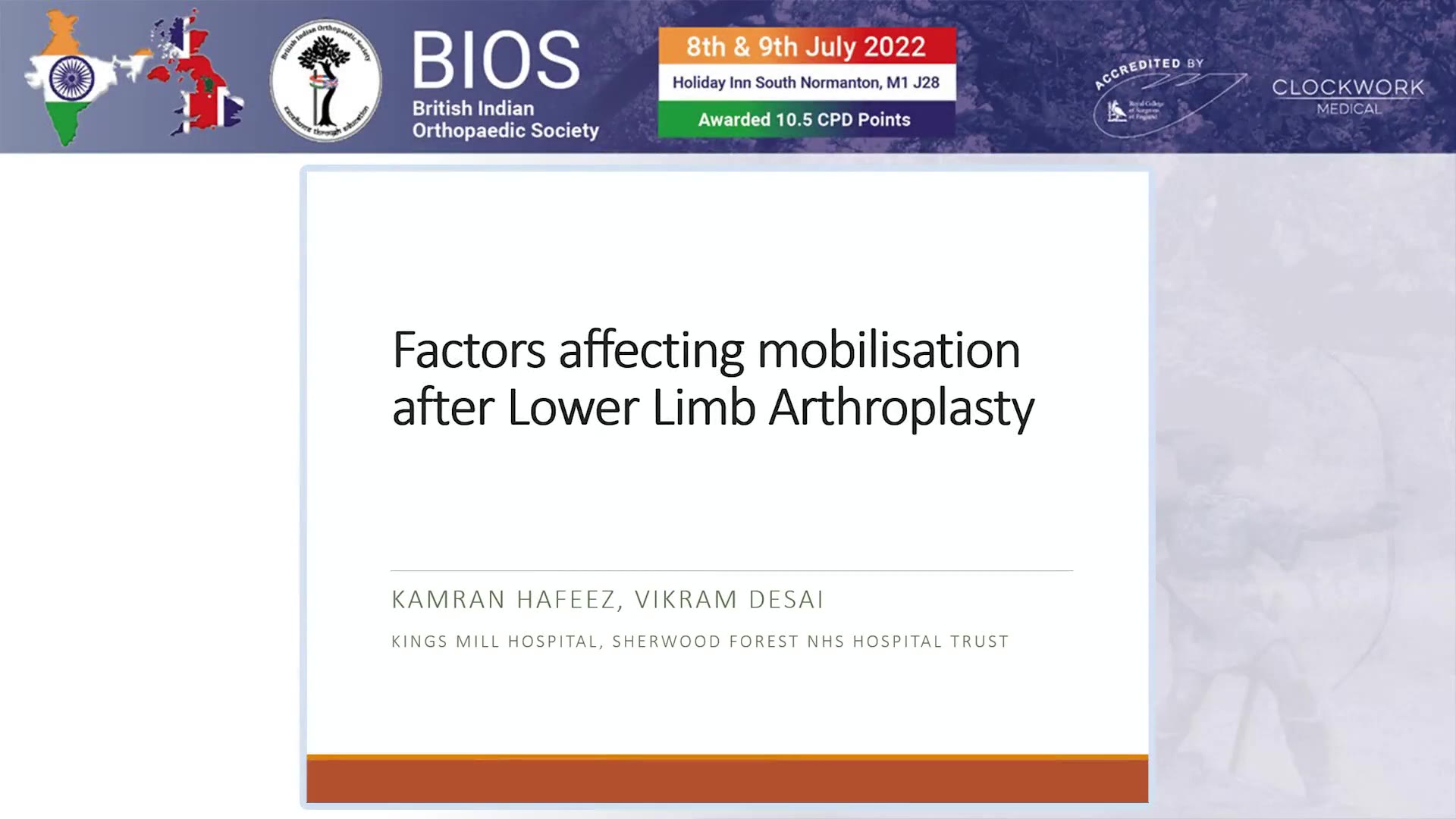Please login to view this media

- Talk
- 08/07/2022
- UK
Factors Affecting Mobilisation After Lower Limb Arthroplasty
Description
In this presentation, Kamran Hafeez discusses the factors influencing early mobilization of patients following lower limb arthroplasty, focusing on the results of a study conducted at King's Mill Hospital. Patients undergoing elective hip and knee arthroplasties are typically medically optimized for swift mobilization, ideally on the same or the following day post-surgery for timely discharge. However, the study revealed that a subset of patients experienced delays in mobilization, leading to extended hospital stays.
The research involved 60 patients and monitored their mobilization status on the first postoperative day, examining various outcomes and factors affecting patient discharge. Despite most patients (50 out of 60) being mobilized on Day 1, 10 did not achieve mobilization, with dizziness and orthostatic hypotension identified as significant barriers. Other findings included a mean patient age of 69 years, prevalent comorbidities like hypertension, and notable pain scores pre- and during mobilization, which correlated with the inability to mobilize earlier.
The study indicated a median length of hospital stay of two days, significantly higher for patients who were not mobilized, highlighting the importance of addressing pain management and ensuring physiotherapy resources are available throughout the day to facilitate faster recoveries. Recommendations to improve early mobilization included the use of cryo-cuffs for pain control, earlier interventions from pain teams, and increased physiotherapist availability. The presenter concluded the need for further research with larger cohorts to deepen the understanding of these factors and possibly implement multivariate analyses.